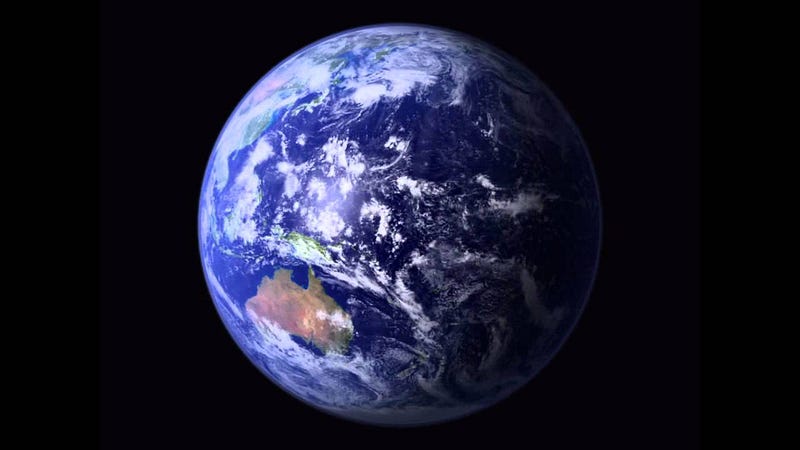# A Captivating Journey Through Science: Bill Bryson's Insightful Read
Written on
Chapter 1: A Transformative Read
Bill Bryson's "A Short History of Nearly Everything" is a remarkable book that reshapes my understanding of the universe. It delves into a wide array of scientific disciplines—be it physics, chemistry, biology, geology, astronomy, or paleontology. While it may resemble a textbook at first glance, it transcends that format. Bryson artfully guides readers through the chaotic adventure of scientific discovery, incorporating the politics and peculiarities of the scientists behind these breakthroughs.
Bryson reveals that scientific advancements are often influenced by the popularity of topics at specific times, which can dictate funding and resources available for research. I always presumed science operated on a straightforward right-or-wrong basis, but I soon learned this assumption was misguided. As a scientist named Agaiz points out in the book, the journey of scientific discovery often follows a familiar pattern: initial rejection, subsequent denial of importance, and eventual recognition—sometimes with credit misattributed to the wrong individuals.
Even with solid evidence, debates often arise regarding its credibility and significance, as well as differing interpretations of the findings.
Moreover, this book opened my eyes to the possibility that the science I learned in school might not be entirely accurate. Many scientists have erred, including the renowned Einstein. Some have proposed theories that, although groundbreaking in their time, now seem absurd. The prevailing "truth" in science often reflects what is broadly accepted by a significant portion of the scientific community.
One striking example discussed is the discovery that the bacterium Helicobacter pylori is responsible for many stomach cancers and ulcers. Although this theory was easily testable, it took over a decade for it to gain widespread acceptance due to its radical implications.

As biologists pursued remarkable revelations about the physical world, they gradually ventured into the fascinating realm of molecular biology. Science serves not just as a means to explain our surroundings but as an art of inquiry and exploration into the unknown. It became evident how much remains beyond our grasp; just as scientists believe they have reached the limits of knowledge, new discoveries invariably emerge, unveiling further mysteries.
When physicists thought they had uncovered all there was to know about the physical realm, an entirely new field of atomic physics appeared. Similarly, in biology, many phenomena and interactions often elude direct observation, leading to the advent of molecular biology. In fact, nearly 97% of animal and plant species on Earth remain undiscovered.
While I marveled at the fascinating facts and human achievements chronicled in Bryson's work, he also emphasizes our insignificance in the grand scheme of things. Despite our accomplishments, we occupy a minuscule slice of history, can only observe a fraction of our world, and reside on a planet that is largely covered by water—70% of it, to be precise.
In our limited understanding, we often view evolution as a linear progression towards our superiority as a species. Bryson challenges this notion, pointing out that our existence is merely the result of a series of fortunate events, including cosmic explosions and random occurrences. Our survival through countless potential catastrophes is a stroke of luck; the universe does not center around us.
Nonetheless, given that we are here by chance, we should cherish the relative peace we enjoy. Earth, in its early stages, was a tumultuous environment filled with toxic gases, extreme heat, and low oxygen levels—conditions under which survival was unlikely. Throughout history, the planet has experienced numerous cycles of warmth and cold. We are fortunate to live in an era of unusual climatic stability. Furthermore, the perils of outer space, such as solar radiation, threaten our existence. Thankfully, Earth's magnetic field offers a protective barrier.
However, our advantageous position may soon be in jeopardy. Climate stability is likely to wane, and we could be approaching an ice age spurred by rising temperatures. The complexities of climate make predictions difficult, but one thing remains certain: we are teetering on a knife's edge.
Reflecting on Bryson's book, I noticed a significant underrepresentation of Asians, Africans, and women in the narrative of scientific exploration. The majority of scientific breakthroughs seem to originate from white men in Europe and America. It would be beneficial if Bryson could include contributions from diverse cultures around the globe.

In conclusion, Bryson's book was an enlightening journey that broadened my perspective, helping me recognize the fleeting nature of my time on Earth and the vastness of the universe!
Rating: 4/5
Chapter 2: Unveiling the Unknown
The first video titled "He Died, Went to Hell, Saw Hitler & What Comes Next Will Shock You!" explores profound themes of existence, offering a compelling narrative that challenges viewers' perceptions of life and the afterlife.
The second video, "Glenn Beck goes deep into 'The Wonderful Wizard of Oz,' book & Gold, Silver, Hugh Rockoff's Allegory," delves into the allegorical layers of a classic tale, revealing insights about society and human nature that resonate with the scientific themes explored by Bryson.